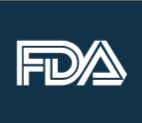U.S. Food and Drug Administration (FDA) officials provided insight on proposed rules for foreign supplier verification programs and the accreditation of third-party auditors during a Sept. 4 web seminar hosted by the United Fresh Produce Association, The Packer reported Sept. 5.
FDA senior policy advisors Charlotte Christin and Brian Pendleton gave presentations on the proposed rules and took questions from the online audience during the 90-minute event. About 150 registered for the free web seminar, according to Ray Gilmer, vice president of issues management and communications for Washington, D.C.-based United Fresh.
Serving as moderator of the online event, David Gombas, senior vice president for food safety and technology for the United Fresh Produce Association, Washington, D.C., spent more than 30 minutes in a question-and-answer session with the FDA officials.
A recording of the web seminar is available on the United Fresh website.
One attendee asked how FDA’s Foreign Supplier Verification Program would determine importer responsibilities if foreign growers met exemptions under the Food Safety Modernization Act. For example, what if a foreign grower sells less than $25,000 of food per year or grows fruits or vegetables that are rarely consumed raw?
“In situations like that, what will the importer be responsible for verifying?” Gombas asked.
FDA’s Pendleton said that if neither the produce safety rule nor the preventive control rules apply to certain foreign growers, the Foreign Supplier Verification Program calls on importers to take steps to ensure that the food they import is not adulterated or misbranded with respect to allergen labeling.
Gombas also asked if the FDA planned to issue any guidelines about what kinds of hazards importers should account for if they have to conduct a hazard analysis of a foreign suppliers. Pendleton said the FDA will issue guidance to help importers comply with the regulation when the final rule is issued.
“We don’t intend to analyze all the hazards in all the possible foods, whether produce or other foods, in the manner we did with seafood,” he said. “We don’t have the resources to do that, but the proposal does talk about hazards that need to be addressed and the type of factors affecting whether a particular hazard is likely to occur in a particular food.”
In her presentation, FDA’s Christin said importers would not generally be required to obtain certifications from third-party audits. However, she said the FDA would in some circumstances use third-party certifications in determining whether to admit certain imported food into the U.S. She said the FDA will determine, based on food safety law criteria, what food poses a risk.


